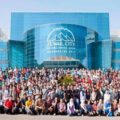Interview with Nicola Baggio, Offgridsun
“Every country in Africa is a different market, and this difference is much more pronounced than between European countries”
The Italian company Offgridsun, specialized in photovoltaic solutions for rural areas without access to the electricity grid, has agreed to support the travel-sharing project by providing one of their solar kit for free. Nicola Baggio, the technical director, explains to us here the interest of their product but also the stakes and difficulties of its marketing in Africa. The opportunity to learn a little more about how African markets work.
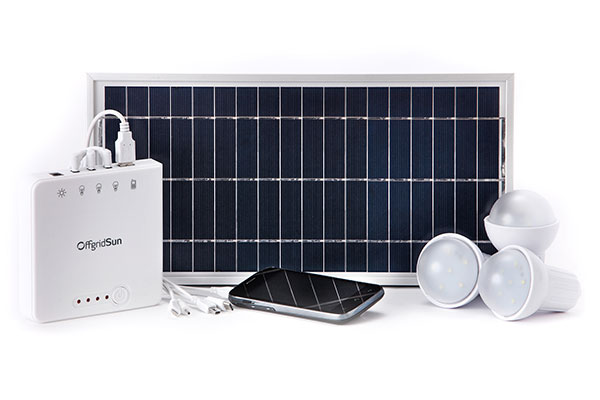
Voyage-partage.fr: What is the solar kit that Offgridsun offered for the project?
Nicola Baggio: This is the Energy Station plus kit. With its 8 watt solar panel and battery, it can be used to recharge phones, tablets, torches and other small devices with a USB plug. To fully charge the battery, the panel must be exposed a full day to the sun.
Personally, I think I hang it on my backpack while travelling to keep an electric autonomy. But initially, this kit was not created primarily for travelers…
No, indeed. It is first intended for people living in rural areas not connected to the electricity grid especially in South America and Africa. It is for this reason that the kit also includes three LED lamps that can be connected directly to the battery and that allow to illuminate each one a room of 9m2.
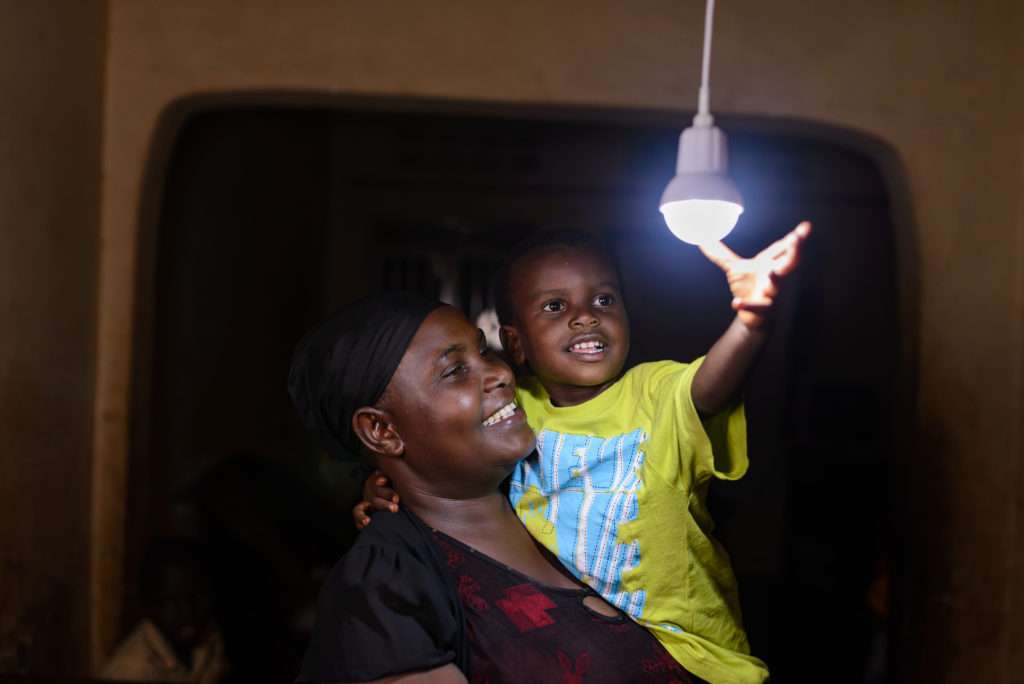
How did you get the idea to develop this type of kit?
In Africa and South America, access to the electricity grid is still very little developed and will probably never be enough to cover the entire population. In fact, these territories are gigantic, poorly served by road networks, and obstacles like mountains or rivers are very numerous in the landscape. These three factors make the costs of installing and maintaining electrical networks more important than in Europe and far too important to assume by these developing Countries. One solution is to make the rural areas self-sufficient in energy without the need to connect to an electricity grid. Hence the idea of individual solar panels producing the electricity needed to be lit and to recharge the phone.
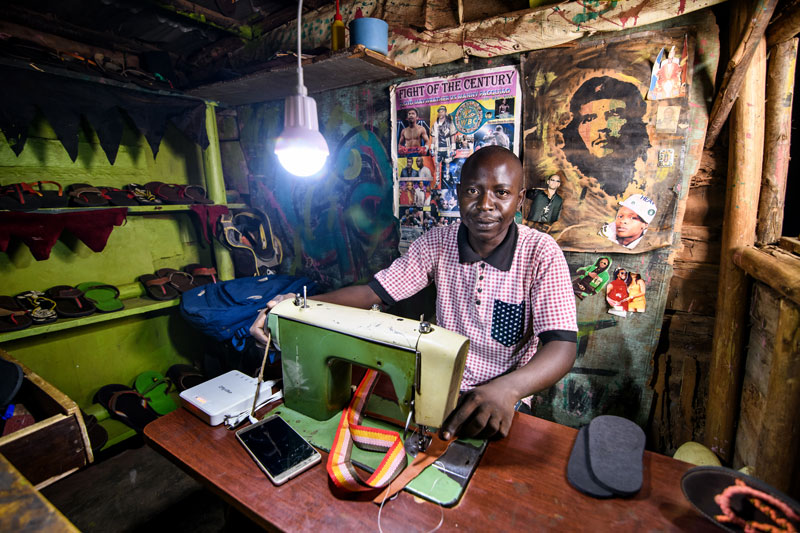
The idea of these kits dates back to 2006, but at the time their marketing was not viable. Why?
In 2006, when we started developing our domestic solar panels within FuturaSun (Offgridsun was created in 2016), they were much more bulky because the panels and batteries had to be bigger at equal production. But above all they were more expensive, 400 euros against 25 to 50 euros today, a price too important for the target population at the time.
Today panels produce more, batteries last longer and LEDs are cheaper. This enabled us in 2013 to revive the product in Africa at a price comparable to the cost of kerosene used by locals to produce their electricity. On average, they use $5 to $10 worth of kerosene per month plus extra money to have their phone recharged. By using our panels, they repay their investment in about five months.
Over the years we have also improved our kit according to customer feedback: we have extended the cables of the bulbs, and allowed several phones to recharge at the same time. We also completely changed the packaging. We realised that our first idea, a little Ikea-style cardboard box, was not appreciated at all because it gave an idea of a “cheap” product. So we completely changed direction and opted for a chic and bright packaging, glossy paper style cardboard, which was much more appreciated.
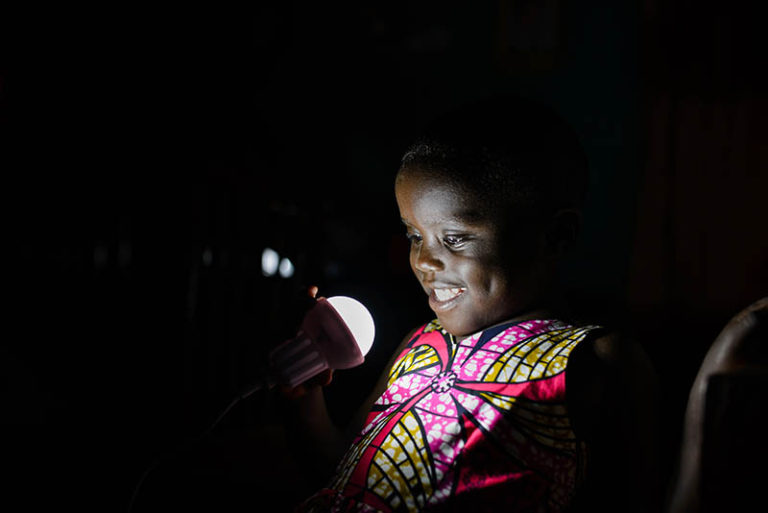
Your kit works for small devices, but what if I want to run a fridge?
For household appliances (fridge, TV…), you can also use solar panels, but then you have to add an inverter to turn the current from DC into AC and that is not the best in terms of efficiency. On the other hand, there are, for example, refrigerators operating in direct current, much more efficient, but more expensive. We sell as well kits suitable for small household appliances (phone, fan, fridge), but at a price of more than €200, again a price not accessible for locals. However, these kits could be of interest to city dwellers or hotel structures located in recurring blackout areas such as Malawi. They can also be funded by NGOs.
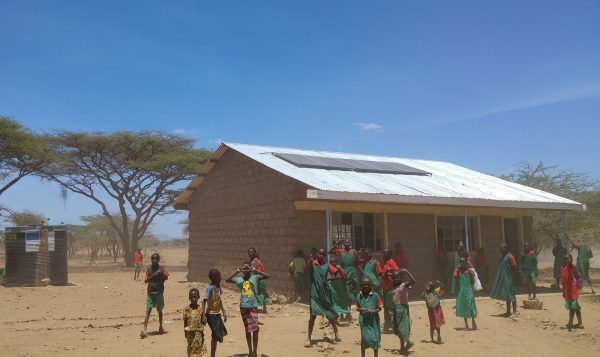
In Africa, which countries do you already sell your products to?
We mainly intervene in Ethiopia, where the World Bank has helped us financially, but also at a smaller level in Kenya, Tanzania, Uganda, Zambia, Senegal, Togo and Rwanda. Now we would like to expand our market in West Africa. This is not obvious because each country in Africa is a completely different market, far more different than between markets of different European countries. We have to adapt each time.
In addition, many brands sell solar panel kits. The problem is that many are of poor quality. They give their soul after just a week or so. As a result, it becomes difficult to convince the inhabitants of the value of our products. To try to change the situation, the World Bank certifies good quality products and conducts audits every two years, including ours.
And what the distribution channel for your kits? In which stores is it possible to find them?
In Africa, our kits are sold in kiosks, the same ones that sell topping up phone cards. But in order for them to arrive at the kiosk, they must first be purchased by a distributor in the country. And the problem is that a local distributor does not have the means to buy a container of panels in foreign currency, dollars or euro. It does not have enough resources to advance such an amount.
On our side, the company can not afford to wait until the distributor sells the product to recover the money. This is a practice that takes place in the United States, where companies benefit from “angel investors” which guarantee them an important working capital. They can then wait to be reimbursed by the distributors. To overcome this difficulty, there are several solutions:
- We accept small orders, accessible to the distributor.
- The World Bank helps distributors to purchase our equipment, as in Ethiopia.
- NGOs buy the equipment and sell it on credit to the locals.
- There are also tenders launched by local Governments, but they are often the objects of bribes or reserved to those close to the decision-makers. And it’s very complicated to win them in a honest way.
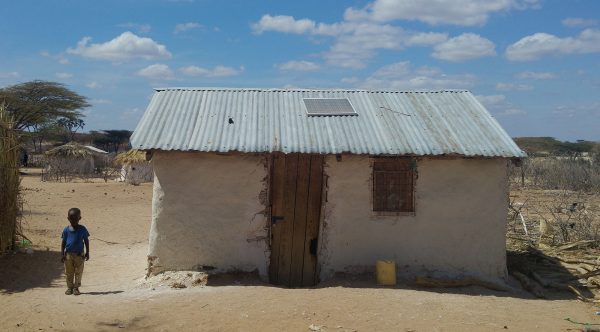
To find more information about Offgridsun’s solar kits, here is their website: http://www.offgridsun.com/en/
Photos from the Offgridsun website

